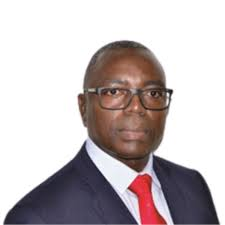
AFRICA has been urged to stop allowing foreign credit ratings on its financial institutions and adopt homegrown standards to grow the continent.
The continent has been plunged into recessions due to unfavourable ratings, which have increased the cost of capital, diverting resources meant for development to loan repayments.
Such ratings have, in turn, led to Africa missing out on investment, as investors use these ratings as part of a holistic view before determining where to invest their capital.
However, the reliance on foreign credit ratings is due to the lack of confidence and failure by most African governments to come up with clear policies that guarantee economic stability and business growth in their nations.
These problems have become increasingly common among countries, especially those reliant on foreign aid, where corruption is rampant.
Speaking to NewsDay Business during last week’s Zimbabwe National Chamber of Commerce (ZNCC) 2025 Annual Congress, Pan African Chamber of Commerce and Industry (PACCI) vice-president Chabuka Kawesha said Africa must stop allowing foreign credit ratings on its financial institutions.
Instead, he said, African nations needed to come up with their fundamentals that guaranteed economic stability and financial security, which would help the continent to develop.
“We need to start controlling our finances rather than waiting for others to do that, because without that, we will not develop. We should not wait for foreigners to regulate the price of our resources. Let’s act in tandem and do things the way that will benefit the African people,” Kawesha said.
- Open letter to President Mnangagwa
- Feature: ‘It’s worse right now than under Mugabe’: Sikhala pays the price of opposition in solitary cell
- Masvingo turns down fire tender deal
- Human-wildlife conflict drive African wild dogs to extinction
Keep Reading
“What we are encouraging African markets and policymakers is that we need to control our financial architecture as a continent, and matters related to postal finance are very critical, as well as the credit rating aspects of our economies and markets.
“It is, therefore, important that Africa has its credit rating agency, or multiple credit rating agencies, on the continent that can speak to the actual prevailing scenarios and risk levels within the African context and the African markets to which the international credit rating agencies must begin to buy in.”
He added that the most important issue was that Africa must have its instruments and platforms that discuss these fundamentals to elevate the continent.
PACCI is an independent, non-profit, and non-partisan organisation established in 2009 to serve Africa’s business by promoting public policies that will foster continental economic integration, competitiveness and sustainable growth.
PACCI offers its constituents a wide range of services, including advocacy for the creation of the African Economic Community, capacity building and business networking.
With more than 50 national chambers of commerce acting as its local focal point, PACCI is one of the largest business associations in Africa and one of the most influential.
“Whether we are talking of market risks, whether we are talking of regulatory risks or financial risks, you need to have African credit rating agencies or an agency that can delve into the actual and real elements that are on the ground in each African market,” Kawesha said.
“It is important that the private sector, working together with policymakers across the country, look at harmonisation of the regulatory frameworks that will speak to carbon credits across the continent and how we intend to oversee and manage our resources and how to gain value in the carbon credit value chain.”
Carbon credits have gained traction over the past few years as governments and companies ramp up efforts to reduce greenhouse gas emissions, with growing interest from investors, regulators and carbon offset project developers.
The interested parties are seeking to tap into the expanding global carbon market, with many launching projects in Africa, as the continent has most of the world’s vast mineral and natural resources.
Kawesha said Africa needs to oversee its resources and make sure they have their metal exchange controlled by Africans who helped the continent.
He called for value addition on African resources such as metals and critical minerals.
He added that the regulatory practices should be done by Africans.
ZNCC’s annual congress ran from Wednesday to Saturday last week at the Elephant Hills Hotel in Victoria Falls.










